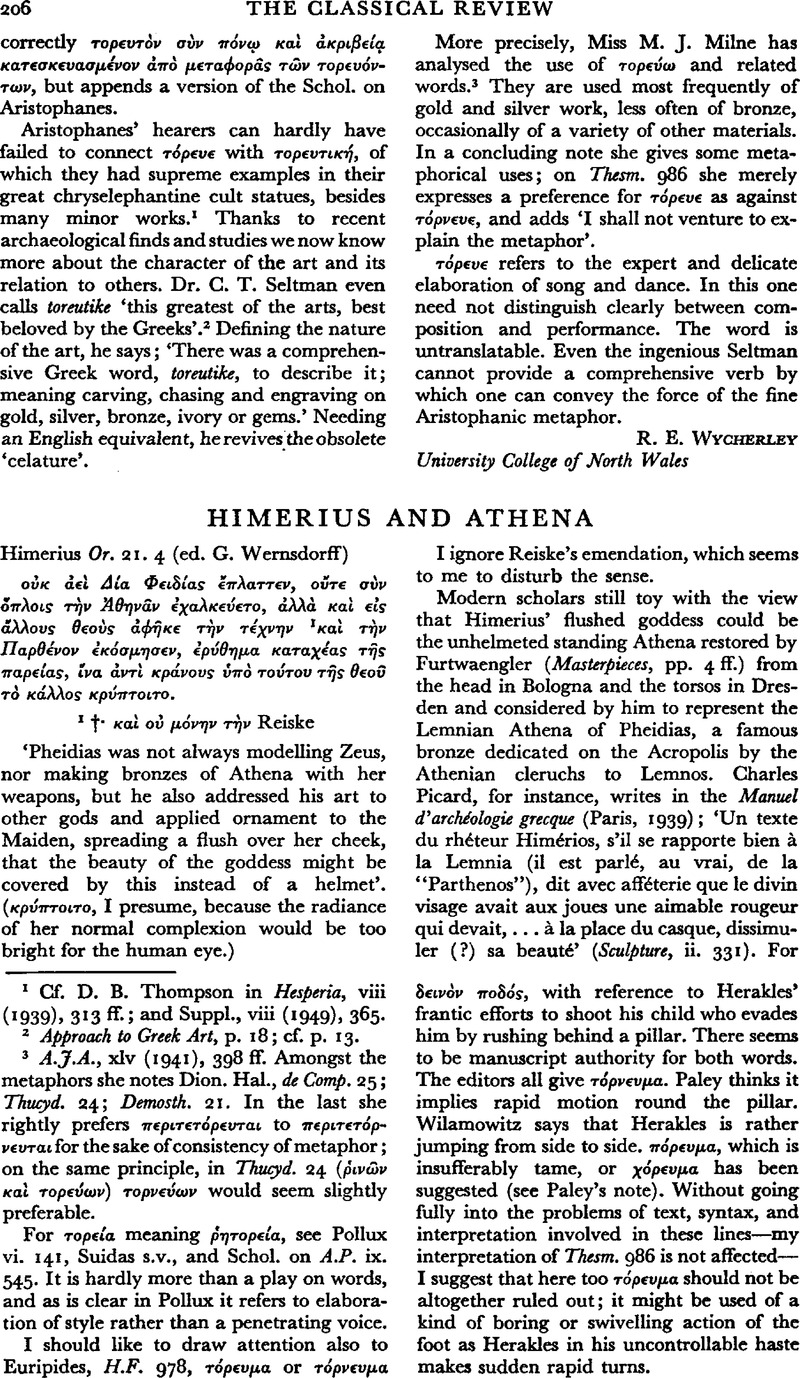No CrossRef data available.
Article contents
Himerius and Athena
Published online by Cambridge University Press: 13 February 2009
Abstract

- Type
- Review Articles
- Information
- Copyright
- Copyright © The Classical Association 1959
References
1 Cf. Thompson, D. B. in Hesperia, viii (1939), 313 ff.Google Scholar; and Suppl., viii (1949), 365.
2 Approach to Greek Art, p. 18; cf. p. 13.
3 A.J.A., xlv (1941), 398 ff. Amongst the metaphors she notes Dion. Hal., de Comp. 25; Thucyd. 24; Demosth. 21. In the last she rightly prefers περιτετ⋯ρνευται to περιτετ⋯ρνευται for the sake of consistency of metaphor; on the same principle, in Thucyd. 24 (ῥιν⋯ν κα⋯ τορε⋯ων) τορνε⋯ων would seem slightly preferable.
For τορε⋯α meaning ῥητορε⋯α, see Pollux vi. 141, Suidas s.v., and Schol. on A.P. ix. 545. It is hardly more than a play on words, and as is clear in Pollux it refers to elaboration of style rather than a penetrating voice.
I should like to draw attention also to Euripides, H.F. 978, τ⋯ρευμα or τ⋯ρνευμα δειν⋯ν ποδ⋯ς, with reference to Herakles' frantic efforts to shoot his child who evades him by rushing behind a pillar. There seems to be manuscript authority for both words. The editors all give τ⋯ρνευμα. Paley thinks it implies rapid motion round the pillar. Wilamowitz says that Herakles is rather jumping from side to side. π⋯ρευμα, which is insufferably tame, or χ⋯ρενμα has been suggested (see Paley's note). Without going fully into the problems of text, syntax, and interpretation involved in these lines—my interpretation of Thesm. 986 is not affected—I suggest that here too τ⋯ρευμα should not be altogether ruled out; it might be used of a kind of boring or swivelling action of the foot as Herakles in his uncontrollable haste makes sudden rapid turns.




